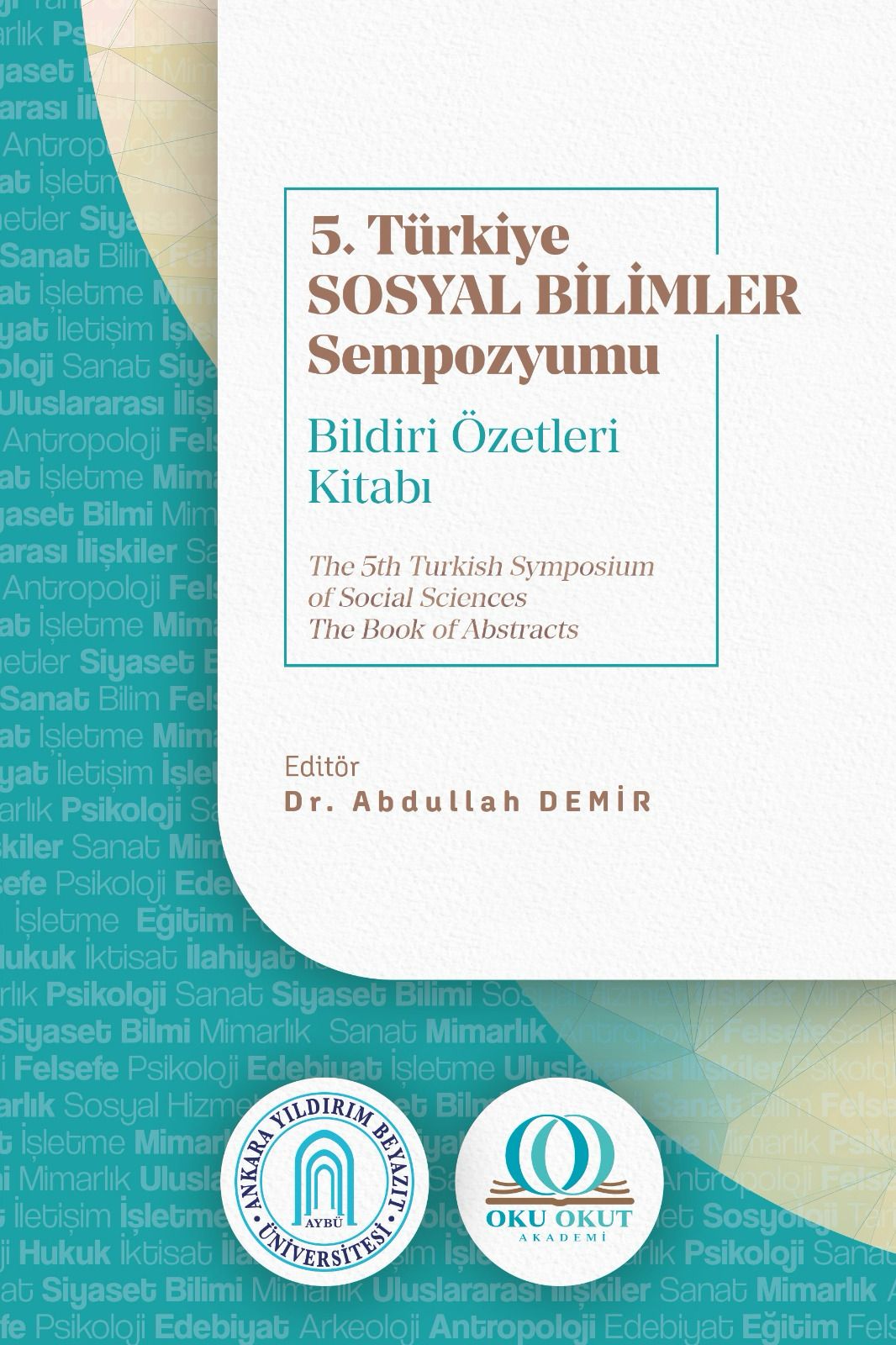The Problem of Morality and Values in Nietzsche’s Philosophy
Nietzsche Felsefesinde Ahlak ve Değerler Sorunu
This study attempts to explain the critiques of morality leveled by the 19th-century philosopher Nietzsche. Nietzsche emerges as a contrarian figure who stands within the Western philosophical tradition while simultaneously radically criticizing it. Known as a philosopher synonymous with the phrase “philosophizing with a hammer,” Nietzsche aims to uncover the roots of the philosophical tradition that has endured until his time, to demolish its foundations and rebuild it on new values. Nietzsche sees Socrates and the values established by the Socratic tradition as the source of Western thought and morality. According to Nietzsche, these values, which disregard this world, prioritize the afterlife, and drive humanity toward nihilism, derive their source from the “supersensible” world, which they envision as truth. According to Nietzsche, values that hold that our actions in this world are good to the extent that they conform to their examples in the world of eternal ideas, and that otherwise are evil, and that foster resentment toward life, despise life and create an unnatural afterlife in opposition to the natural. Accordingly, Nietzsche’s role was to highlight the realities of the lived world rather than preoccupy himself with the afterlife. In response to questions such as, “What is life? What is the meaning of life?”, Nietzsche defines life as the will to power. According to Nietzsche, every living being has a desire for power everywhere. Humanity’s true desire is the desire to be more powerful. This will to power is what makes us human. According to Nietzsche, who defines life as the will to power, the morality of the time and the values of Christianity are obstacles to the will to power. For Nietzsche, if the purpose of life is to live, this life should be to create values through the will to power and to live according to these created values. However, the Christian tradition and the values of Western humanity championed an understanding dominated by compassion, highlighting human weaknesses. Such a life values suffering, disparages the body, and denies life. On the other hand, Nietzsche reveals the superman who is motivated by the will to power, that is, the man who stands against all the rotten values of his age and who manages to go beyond the good and evil valid in his age, who surpasses himself and creates new values.
Bu çalışmada 19. yüzyıl filozofu olan Nietzsche’nin ahlaka yönelttiği eleştiriler açıklanmaya çalışılmıştır. Nietzsche, Batı felsefesi geleneğinin içinde bulunan fakat aynı zamanda onu radikal biçimde eleştiren aykırı bir figür olarak karşımıza çıkar. “Çekiçle felsefe yapma” tabiriyle özdeşleşmiş bir filozof olarak anılan Nietzsche, çağına kadar devam eden felsefe geleneğinin köklerini ortaya çıkarma, temellerini yıkıp onu yeni değerler üzerine yeniden kurma niyetindedir. Nietzsche, Batı düşüncesinin ve ahlakının kaynağı olarak Sokrates’i ve Sokratesçi geleneğin ortaya koyduğu değerleri görür. Nietzsche’ye göre bu dünyayı hiçe sayan, öte dünyayı üstün tutan ve insanlığı nihilizme sürükleyen bu değerler, kaynağını hakikat olarak öngördükleri “duyu üstü” dünyadan alır. Nietzsche’ye göre bu dünyadaki eylemlerimizin sonsuz idealar dünyasındaki örneklerine uygun olduğu ölçüde iyi, aksi halde kötü olduğunu savunan ve yaşama karşı hınç besleyen değerler, yaşamı aşağılayarak doğal olana karşı doğa dışı bir öte dünya yaratır. Buna bağlı olarak Nietzsche’ye düşen, öte dünyaya ait şeyler ile uğraşmaktan ziyade yaşanan dünyanın gerçeklerini ön plana çıkarmaktır. “Yaşam nedir, yaşamın anlamı nedir?” gibi sorulara ise Nietzsche, yaşamı güç istenci olarak tanımlar. Nietzsche’ye göre canlı olanın, bulunduğu her yerde güçlü olmaya yönelik bir istek vardır. İnsanın asıl istediği de daha güçlü olma arzusudur. İnsanı insan yapan da bu güç istencidir. Yaşamı güç istenci olarak tanımlayan Nietzsche’ye göre dönemin ahlakı ve Hristiyanlığın değerleri güç istencinin önünde bir engeldir. Nietzsche için amaç yaşamaksa bu yaşam güç istenci ile değerler yaratmak ve bu yaratılan değerlere göre yaşamak olmalıdır. Oysa Hristiyan geleneği ve Batı insanının değerleri, insanların zayıflıklarını ön plana çıkararak, acıma duygusunun hâkim olduğu bir anlayışı savunmaktaydı. Böyle bir yaşam acıyı değerli görür, bedeni küçümser ve yaşamı yadsır. Buna karşın Nietzsche güç istenci ile harekete geçen üstinsanı, yani çağının her türlü çürümüş değerlerinin karşısında duran ve çağında geçerli olan iyi ve kötünün ötesine geçebilmeyi başaran, kendisini aşan ve yeni değerler yaratan insanı ortaya çıkarır.

Telif Hakkı (c) 2025 Kenyan Alphan (Yazar)
Bu çalışma Creative Commons Attribution-NonCommercial 4.0 International License ile lisanslanmıştır.
CC BY-NC 4.0 lisansı, eserin ticari kullanım dışında, her türlü ortam ve formatta paylaşılmasına, kopyalanmasına, çoğaltılmasına ve orijinal esere uygun şekilde atıfta bulunmak kaydıyla yeniden düzenlenmesine, dönüştürülmesine ve eser üzerine inşa edilmesine izin verir.
Makale Bilgileri
- Konu Felsefe - Mantık
- Gönderim 7 Temmuz 2025
- Kabul 31 Temmuz 2025
- Yayım 29 Kasım 2025
- Sayı 5. Türkiye Sosyal Bilimler Sempozyumu
- Bildiri Bilim Alanı Felsefe - Mantık
Alphan, Kenyan. “Nietzsche Felsefesinde Ahlak Ve Değerler Sorunu”. Türkiye Sosyal Bilimler Sempozyumu 5 (November 29, 2025). https://doi.org/10.55709/tsbsdergisi.694






